Latest Applications Open 2024:
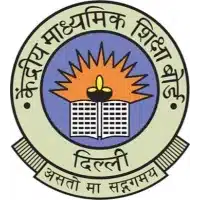
Those applicants who want to get this opportunity to join Central Government Schools such as NVS/KVS/Tibetan Schools etc., as a teacher can appear in this examination by their Eligibility Criteria.
Applicants will be appointed as teachers per their marks obtained in CTET Examination. Here, through this content, candidates will get detailed information on the Central Teacher Eligibility Test (CTET), including the CTET syllabus.
CTET Previous Year Syllabus 2024 – Available
CTET 2024 Previous Year Syllabus has been Available officially by CTET. Click to download the Previous CTET Syllabus PDF.
CTET 2024 Syllabus
Those applicants who have applied for the CTET Examination; must prefer the syllabus prescribed by the NCERT for classes 1 – 5. For Paper II, the syllabus will be in the Elementary stage. All the questions will be objective, each carrying one mark with no provision for negative marking.
CTET 2024 Syllabus for Paper I
I. Child Development and Pedagogy (30 Questions)
(a) Child Development (Primary School Child) (15 Questions)
Latest Applications For Various UG & PG Courses Open 2024
-
- Parul University | Admissions Open for All Courses 2024. Apply Now
- UPES Dehradun | Admissions Open for All Courses 2024. Apply Now
- Chandigarh University | Admissions Open for All Courses 2024. Apply Now
- LPU 2024 | Admissions Open for All Courses 2024. Apply Now
- IIAD, Delhi | Admissions Open for All Courses 2024. Apply Now
- GIBS, Bangalore | PGDM Applications Open. Package upto 15.5 LPA. Apply Now
- GNIOT, Greater Noida | Admissions Open for All Courses 2023. Apply Now
- The Design Village | Admissions Open for All Courses 2024. Apply Now
- IMS Ghaziabad UC Campus | Admissions Open for All Courses 2024. Apply Now
- KIIT School of Management | Admissions Open for All Courses 2024. Apply Now
- KSRM | Admissions Open for All Courses 2024. Apply Now
- Jaipuria Institute of Management | Admissions Open for All Courses 2024. Apply Now
- NIIT | Admissions Open for All Courses 2024. Apply Now
- MITWPU | Admissions Open for All Courses 2024. Apply Now
- Amrita B.Tech | Admissions Open for All Courses 2024. Apply Now
- KL University | Admissions Open for All Courses 2024. Apply Now
- Alliance MBA | Admissions Open for All Courses 2024. Apply Now
- Alliance UG | Admissions Open for All Courses 2024. Apply Now
- Concept of development and its relationship with learning
- Principles of the Development of Children
- Influence of Heredity & Environment
- Socialization processes: Social world & children (Teacher, Parents, Peers)
- Piaget, Kohlberg, and Vygotsky: constructs and critical perspectives
- Concepts of child-centred and progressive education
- Critical Perspective of the Construct of Intelligence
- Multi-Dimensional Intelligence
- Language & Thought
- Gender as a social construct; gender roles, gender bias and educational practice
- Individual differences among learners, understanding differences based on the diversity of language, caste, gender, community, religion, etc.
- The distinction between Assessment for learning and Assessment of learning; School-Based Assessment, Continuous & Comprehensive Evaluation: perspective and practice
- Formulating appropriate questions for assessing learners’ the readiness levels, enhancing learning and critical thinking in the classroom, and assessing learner achievement.
(b) Concept of Inclusive education and understanding children with special needs (5 Questions)
- Addressing learners from diverse backgrounds, including disadvantaged and deprived
- Addressing the needs of children with learning difficulties, ‘impairment’ etc.
- Addressing the Talented, Creative, Specially abled Learners
(c) Learning and Pedagogy (10 Questions)
- How children think and learn; how and why children ‘fail’ to achieve success in school performance.
- Primary teaching and learning processes; children’s learning strategies; learning as a social activity; social context of learning.
- Child as a problem solver and a ‘scientific investigator.’
- Alternative conceptions of learning in children, understanding children’s-errors as significant steps in the learning process.
- Cognition & Emotions
- Motivation and learning
- Factors contributing to learning – personal & environmental
II. Language I (30 Questions)
(a) Language Comprehension (15 Questions)
- Reading unseen passages – two passages, one prose or drama, and one poem with questions on comprehension, inference, grammar, and verbal ability (Prose passage may be literary, scientific, narrative or discursive)
b) Pedagogy of Language Development (15 Questions)
- Learning and acquisition
- Principles of Language Teaching
- Role of listening and speaking; function of language and how children use it as a tool
- A critical perspective on the role of grammar in learning a language for communicating ideas verbally and in written form
- Challenges of teaching language in a diverse classroom; language difficulties, errors, and disorders
- Language Skills
- Evaluating language comprehension and proficiency: speaking, listening, reading, and writing
- Teaching-learning materials: Textbook, multi-media materials, multilingual resources of the classroom
- Remedial Teaching
III. Language – II (30 Questions)
(a) Comprehension (15 Questions)
- Two unseen prose passages (discursive or literary or narrative or scientific) with a question on comprehension, grammar, and verbal ability
(b) Pedagogy of Language Development (15 Questions)
- Learning and acquisition
- Principles of Language Teaching
- Role of listening and speaking; function of language and how children use it as a tool
- A critical perspective on the role of grammar in learning a language for communicating ideas verbally and in written form;
- Challenges of teaching language in a diverse classroom; language difficulties, errors, and disorders
- Language Skills
- Evaluating language comprehension and proficiency: speaking, listening, reading, and writing
- Teaching-learning materials: Textbook, multi-media materials, multilingual resources of the classroom
- Remedial Teaching
IV Mathematics (30 Questions)
(a) Content 15 Questions
- Geometry
- Shapes & Spatial Understanding
- Solids around Us
- Numbers
- Addition and Subtraction
- Multiplication
- Division
- Measurement
- Weight
- Time
- Volume
- Data Handling
- Patterns
- Money
(b) Pedagogical issues (15 Questions)
- Nature of Mathematics/Logical thinking; understanding children’s thinking and reasoning patterns and strategies for making meaning and learning
- Place of Mathematics in Curriculum
- Language of Mathematics
- Community Mathematics
- Evaluation through formal and informal methods
- Problems of Teaching
- Error analysis and related aspects of learning and teaching
- Diagnostic and Remedial Teaching
V. Environmental Studies (30 Questions)
(a) Content (15 Questions)
- Family and Friends:
- Relationships
- Work and Play
- Animals
- Plants
- Food
- Shelter
- Water
- Travel
- Things We Make and Do
(b) Pedagogical Issues (15 Questions)
- Concept and scope of EVS
- Significance of EVS integrated EVS
- Environmental Studies & Environmental Education
- Learning Principles
- Scope & Relation to Science & Social Science
- Approaches to presenting concepts
- Activities
- Experimentation/Practical Work
- Discussion
- CCE
- Teaching material/Aids
- Problems
CTET 2024 Syllabus for Paper 2
1. Child Development and Pedagogy Syllabus (30 Questions)
(a) Child Development (Primary School Child) (15 Questions)
- The concept of development and its relationship with learning
- Principles of the Development of Children
- Critical Perspective of the Construct of Intelligence
- Multi-Dimensional Intelligence
- Influence of Heredity & Environment
- Socialization processes: Social world & children (Teacher, Parents, Peers)
- Piaget, Kohlberg, and Vygotsky: constructs and critical perspectives
- Concepts of child-centred and progressive education
- Language & Thought
- Gender as a social construct
- Individual differences among learners, understanding differences based on diversity of language, caste, gender, community, religion, etc.
- I am formulating appropriate questions for assessing the learners’ readiness levels, enhancing learning and critical thinking in the classroom, and assessing learner achievement.
- The distinction between Assessment for learning and Assessment of learning; School-Based Assessment, Continuous & Comprehensive Evaluation: perspective and practice
(b) The concept of Inclusive education and understanding children with special needs (5 Questions)
- Addressing learners from diverse backgrounds, including disadvantaged and deprived
- Addressing the needs of children with learning difficulties, ‘impairment’ etc.
- Addressing the Talented, Creative, Specially abled Learners
(c) Learning and Pedagogy (10 Questions)
- How children think and learn; how and why children ‘fail’ to achieve success in school performance.
- Basic processes of teaching and learning
- children’s strategies for learning
- Learning as a social activity
- The social context of learning.
- Child as a problem solver and a ‘scientific investigator.’
- Alternative conceptions of learning in children, understanding children’s-errors as significant steps in the learning process.
- Cognition & Emotions
- Motivation and learning
- Factors contributing to learning – personal & environmental
2. Language I (30 Questions)
(a) Comprehension (15 Questions)
Reading unseen passages – two passages, one prose or drama and one the poem, with questions on comprehension, inference, grammar, and verbal ability (Prose passage may be literary, scientific, narrative, or discursive)
(b) Pedagogy of Language Development (15 Questions)
- Learning and acquisition.
- Principles of Language Teaching.
- Role of listening and speaking; the function of language and how children use it as a tool.
- A critical perspective on the role of grammar in learning a language for communicating ideas verbally and in written form.
- Challenges of teaching language in a diverse classroom
- Language Skills.
- Evaluating language comprehension and proficiency
- Teaching-learning materials
- Remedial Teaching.
3. Language II (30 Questions)
(a) Comprehension (15 Questions)
Two unseen prose passages (discursive or literary or narrative or scientific) with the question of comprehension, grammar, and verbal ability
(b) Pedagogy of Language Development (15 Questions)
- Learning and acquisition.
- Principles of Language Teaching.
- Role of listening and speaking; the function of language and how children use it as a tool.
- A critical perspective on the role of grammar in learning a language for communicating ideas verbally and in written form.
- Challenges of teaching language in a diverse classroom
- Language Skills.
- Evaluating language comprehension and proficiency
- Teaching-learning materials.
- Remedial Teaching.
4. Mathematics and Science 60 Questions
(i) Mathematics (30 Questions)
(a) Content (20 Questions)
- Number System
- Knowing our Numbers
- Playing with Numbers
- Whole Numbers
- Negative Numbers and Integers
- Fractions
- Algebra
- Introduction to Algebra
- Ratio and Proportion
- Geometry
- Basic geometrical ideas (2-D)
- Understanding Elementary Shapes (2-D and 3-D)
- Symmetry: (reflection)
- Construction (using Straight edge Scale, protractor, compasses)
- Mensuration
- Data handling
(b) Pedagogical issues (10 Questions)
- Nature of Mathematics/Logical Thinking
- Place of Mathematics in Curriculum
- Language of Mathematics
- Community Mathematics
- Evaluation
- Remedial Teaching
- Problem of Teaching
(ii) Science (30 Questions)
(a) Content (20 Questions)
- Food
- Sources of food
- Components of food
- Cleaning food
- Materials
- Materials of daily use
- The World of the Living
- Moving Things People and Ideas
- How things work
- Electric current and circuits
- Magnets
- Natural Phenomena
- Natural Resources
(b) Pedagogical issues (10 Questions)
- Nature & Structure of Sciences
- Natural Science/Aims & Objectives
- Understanding & Appreciating Science
- Approaches/Integrated Approach
- Observation/Experiment/Discovery (Method of Science)
- Innovation
- Text Material/Aids
- Evaluation – cognitive/psychomotor/affective
- Problems
- Remedial Teaching
5. Social Studies/Social Sciences
(a) Content
i. History
- When, Where, and How
- The Earliest Societies
- The First Farmers and Herders
- The First Cities
- Early States
- New Ideas
- The First Empire
- Contacts with Distant lands
- Political Developments
- Culture and Science
- New Kings and Kingdoms
- Sultans of Delhi
- Architecture
- Creation of an Empire
- Social Change
- Regional Cultures
- The Establishment of Company Power
- Rural Life and Society
- Colonialism and Tribal Societies
- The Revolt of 1857-58
- Women and reform
- Challenging the Caste System
- The Nationalist Movement
- India After Independence
ii. Geography
- Geography as a social study and as a science
- Planet: Earth in the solar system
- Globe
- The environment in its totality: natural and human environment
- Air
- Water
- Human Environment: settlement, transport, and communication
- Resources: Types-Natural and Human
- Agriculture
iii. Social and Political Life
Latest Applications For Various UG & PG Courses Open 2024
-
- Parul University | Admissions Open for All Courses 2024. Apply Now
- UPES Dehradun | Admissions Open for All Courses 2024. Apply Now
- Chandigarh University | Admissions Open for All Courses 2024. Apply Now
- LPU 2024 | Admissions Open for All Courses 2024. Apply Now
- IIAD, Delhi | Admissions Open for All Courses 2024. Apply Now
- GIBS, Bangalore | PGDM Applications Open. Package upto 15.5 LPA. Apply Now
- GNIOT, Greater Noida | Admissions Open for All Courses 2023. Apply Now
- The Design Village | Admissions Open for All Courses 2024. Apply Now
- IMS Ghaziabad UC Campus | Admissions Open for All Courses 2024. Apply Now
- KIIT School of Management | Admissions Open for All Courses 2024. Apply Now
- KSRM | Admissions Open for All Courses 2024. Apply Now
- Jaipuria Institute of Management | Admissions Open for All Courses 2024. Apply Now
- NIIT | Admissions Open for All Courses 2024. Apply Now
- MITWPU | Admissions Open for All Courses 2024. Apply Now
- Amrita B.Tech | Admissions Open for All Courses 2024. Apply Now
- KL University | Admissions Open for All Courses 2024. Apply Now
- Alliance MBA | Admissions Open for All Courses 2024. Apply Now
- Alliance UG | Admissions Open for All Courses 2024. Apply Now
- Diversity
- Government
- Local Government
- Making a Living
- Democracy
- State Government
- Understanding Media
- Unpacking Gender
- The Constitution
- Parliamentary Government
- The Judiciary
- Social Justice and the Marginalised
(b) Pedagogical Issues (20 Questions)
- Concept & Nature of Social Science/Social Studies
- Class Room Processes, activities, and Discourse
- Developing Critical thinking
- Inquiry/Empirical Evidence
- Problems of Teaching Social Science/Social Studies
- Sources – Primary & Secondary
- Projects Work
- Evaluation
If you have any queries regarding CTET Syllabus 2024, you can ask your query and leave comments below.
Hi Guys, I am Sandeep Co-founder of IASpaper and UPSCToday Staying in Mumbai (India) and pursuing graduation in Computer Science and Engineering from Mumbai University. I love helping Aspirants.
You may join me on Facebook


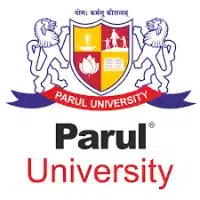
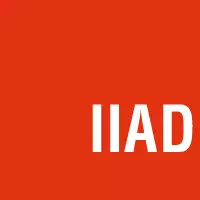
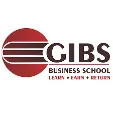
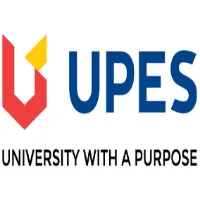
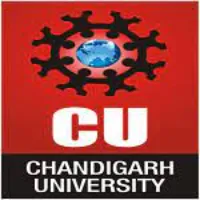
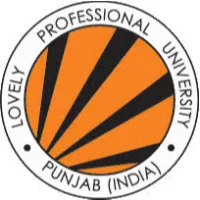
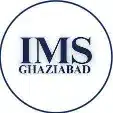
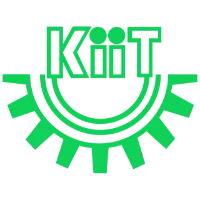
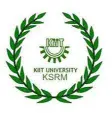
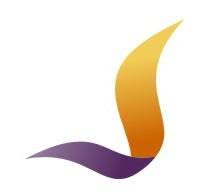
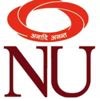
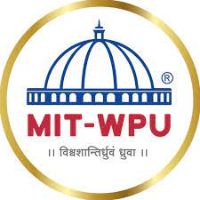
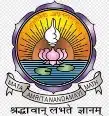
What is the syllabus for S.A(ENGLISH)
Waht is the syllabus of evs 2021 according to cluster university kashmir